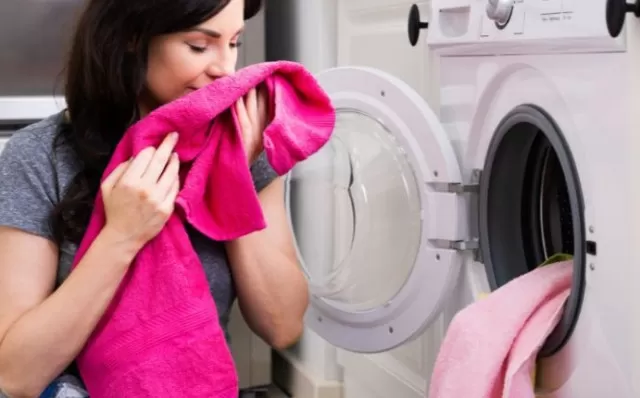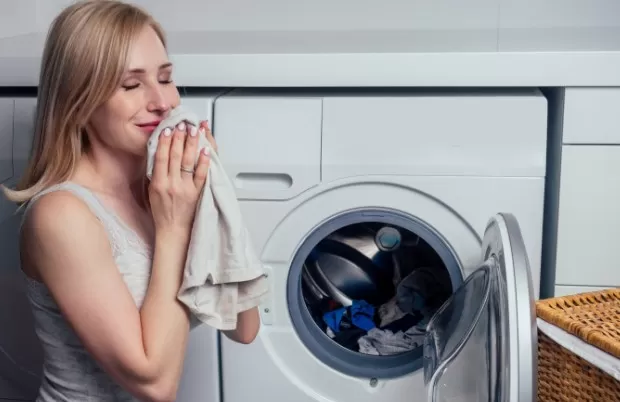Dryer sheets: Purpose and Benefits for Your Laundry?
As laundry is a time-consuming task, people seek ways to make it more efficient. There are many laundry care products available that claim to aid in the process.
However, besides detergent, you might question the necessity of add-in products like dryer sheets, which could be taking up more time and money. To explore if dryer sheets are worth using and how they work, we consulted laundry professionals for their insight.
How Do Dryer Sheets Function in Laundry Care?

Dryer sheets are fabric-like sheets made of polyester or cellulose, coated with fabric-softening elements and fragrances.
Beyond the signature fresh laundry scent, they offer additional benefits. These sheets help reduce static, minimize wrinkling, and provide a softer feel to clothes and linens.
According to Bounce’s senior scientist Sammy Wang, dryer sheets are activated by heat and tumbling.
As they tumble alongside fabrics, they evenly distribute softening, freshness, and anti-static agents throughout the load. This is especially useful for fabrics prone to static, like wool, polyester, and rayon.
Furthermore, they reduce wrinkling in easily wrinkled fabrics like cotton and linen, while imparting a soft texture to them.
Can Dryer Sheets Be Damaging to Your Laundry?

As dryer sheets are not essential in laundry, you may wonder if using them could potentially harm your clothes.
While they are not inherently bad, there are specific scenarios where they are best utilized. Before adding a sheet to your dryer, take note of these considerations.
Potential Irritation for Sensitive Skin Dryer sheets contain fragrance and static-fighting agents that may cause skin irritation for individuals with sensitivities.
“If you or anyone in your household has sensitive skin, research the effects of dryer sheets as they can cause irritation,” advises Leanne Stapf, a cleaning expert and COO of The Cleaning Authority. Consider fragrance-free options if the scent is bothersome.
Avoid Using on Water-Repellent Fabrics When laundering moisture-wicking fabrics such as activewear, microfiber, and towels, do not use dryer sheets.
According to cleaning expert Jill Koch, the ingredients in dryer sheets may coat the fibers, making them non-absorbent. To ensure proper drying, check your items’ wash care labels.
Moderate Use Dryer sheets may create residue on clothing and coat dryer vents with prolonged use, says Koch.
Follow the usage instructions, which typically involve using one sheet for a small to medium-sized load. You can also reduce use by adding a sheet to every one to two loads.
The Proper Way to Use Dryer Sheets

Using dryer sheets is a straightforward process.
Simply toss one sheet into the dryer before starting the cycle.
Step 1: Transfer Wet Clothes to Dryer After the washing cycle, transfer the clothes to the dryer.
Step 2: Add One or Two Sheets Using the right amount of dryer sheets is crucial for optimal results, according to Wang.
“Dryer sheets are effective for every laundry load, but it’s important to use the correct number of sheets based on the load size to obtain full benefits such as softening, anti-static, and anti-wrinkle properties,” he notes. Use the “armload” method to determine how many sheets to use.
If your laundry load can be easily carried in an armload or less, one dryer sheet is sufficient. For a full or overflowing armload, use two.
Step 3: Dry Clothes Allow the dryer to run a full cycle to benefit from the dryer sheets.
As dryer sheets are single-use, they can be discarded after use.
Ways to Soften Clothes Without Using Dryer Sheets
If you prefer not to use single-use dryer sheets but still want to enjoy their benefits, there are alternative options available.
One alternative is using wool dryer balls, scented or unscented, which offer similar anti-static and fabric-softening effects.
Koch recommends using vinegar as another alternative.
“Adding half a cup of vinegar to the wash cycle can help soften laundry,” she says. “Alternatively, you can soak a washcloth or old t-shirt in vinegar and throw it in the dryer with the clothes.
” Don’t worry, your clothes won’t smell like vinegar!.
*The information is for reference only.